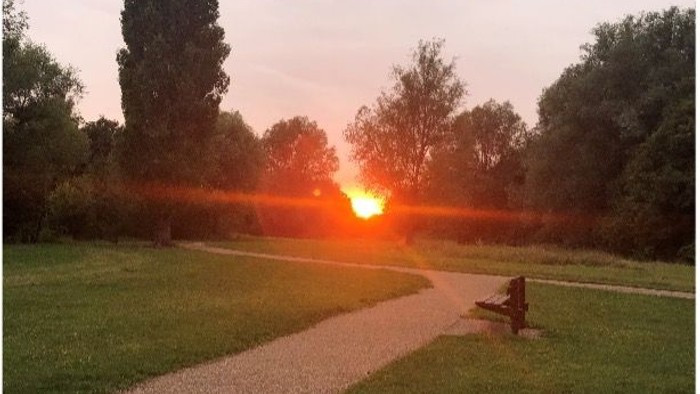02/07/2024 0 Comments
Thought for the week - 17 April 2022
Thought for the week - 17 April 2022
# Thought for the week

Thought for the week - 17 April 2022
Readings:
Isaiah 65:17-25;
Psalm 118:1-2, 14-24;
Acts 10:34-43;
John 20:1-18
Collect:
Most glorious God,
who on this day delivered us by the mighty resurrection of your Son, Jesus Christ, and made your whole creation new:
grant that we who celebrate with joy his rising from the dead
may be raised from the death of sin to the life of righteousness;
through him who is alive and reigns with you,
in the unity of the Holy Spirit, one God,
now and forever. Amen

Reflection
Easter – forgiveness, healing, rejoicing and new creation. There are lots of words we can associate with Easter, and, like most of the Easter hymns we’ll enjoy singing, they’ll all be positive and full of joy. We can, however, be lured into thinking that with Easter, all the rejection and betrayal, all the suffering and the pain are over. The stories in all the gospels after Jesus’ resurrection make it very clear that it is not as simple as that. Reading those passages set for Easter again, the word that has reverberated with me is “recognition” – the recognition of what has happened and that its significance is not yet complete.
In Isaiah, the prophet proclaims restoration to a people still experiencing destruction, a new Jerusalem and a new creation. It’s about to happen, says the prophet, and formerly desolate areas will become rich and fruitful. People and even creatures will be transformed and live together in peace – images of the wolf and the lamb grazing together, the lion and the ox eating straw. Recognize the presence of God, they are told, and follow the Covenant. The psalm too calls for people to recognize who and where they are. It may have been used by pilgrims processing into Jerusalem. As the come to the Temple they recognize their previous dirges of distress become glad songs of victory (Ps 118:12-13). While still in procession they recognize that the previously rejected stone is in fact the keystone (Ps 118:22).
The starkest, perhaps strangest lack of recognition is by Mary Magdalene in John’s gospel. First, she’s weeping outside the tomb and then looks in to be asked “Why are you crying?” I’m amazed she doesn’t ask what the angels are doing there. But she doesn’t. Then she turns around to see “the gardener”. She’s distressed, naturally, but even when he speaks to her, she has no clue who he is. Only when he says her name … everything changes. Her world changes and she becomes the apostle to the apostles – sent to them by Jesus to tell them. In this moment, however, I am also surprised to hear Jesus say to her, “Don’t hold onto me,” or perhaps “Don’t cling to me,” as if she is already holding on (Jn 20:17). I am shocked that Jesus does not want her to touch him. I’m left upset wondering if her joy at seeing him is rejected.
All this is Easter – confusion and distress, angels (messengers from God) clearly giving a message, but not taken in, and “the gardener”, right there when we turn around, just not recognized. And when we DO recognize, this is not one onto whom we can hold, or grasp. Not one onto whom we can cling. Mary’s message to the disciples is that the whole world is changed. Working this out, however, is not at all clear.
Just after this story, John’s gospel does allow Jesus to be touched … by Thomas, who is invited to touch Jesus’ unhealed wounds. It is as if Jesus shows, even offers, his wounds to those who struggle most to recognize what has happened. We are allowed to touch the pain, for the pain is real and present, and in touching that pain, we are offered to share Jesus’ new life. We’re just not to cling to him, hold him back. We are allowed to touch.
There is much joy and healing proclaimed in this Easter season. New life is breathed into the disciples, whose response is first to worship. Jesus’ followers recognize and proclaim a new creation for all in which the enmity between people is overcome, and an abundance of life and forgiveness offered, lives changed.
We are invited to join them, to recognize what has happened and now to participate in this new reality. Just as Jesus calls Mary Magdalene and Thomas by their own names, so each of us is called by our own name. As we struggle with the events around us just now – increase of covid cases, dramatic rise in fuel prices, war in Ukraine, personal family losses, even the betrayal by our leaders in government – we are assured that Jesus is here, right beside us. Calling us to respond personally to live the new life in Christ.
Barry Lotz

Comments